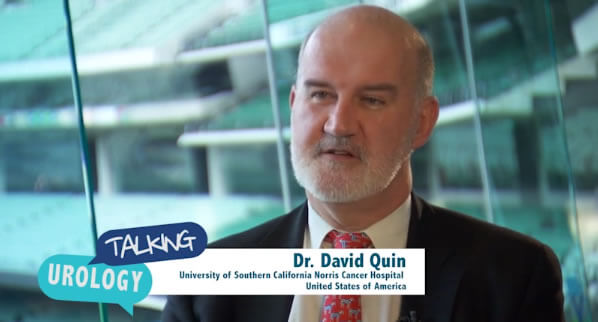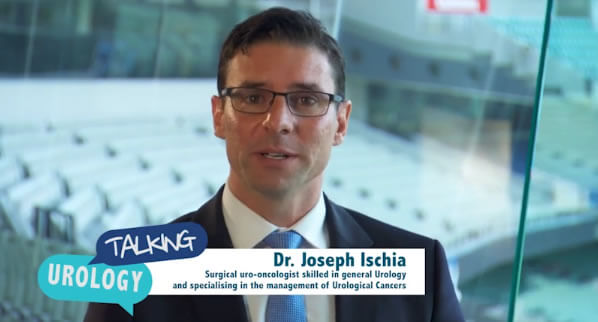ANZUP 2018 – Dr George Hruby
Dr George Hruby dares to ask if you can radiate the prostate more than once.
Talking Urology Podcast Transcript
ANZUP 2018 Interviews – George Hruby
Joseph Ischia: Thank you, George, for joining us. It’s an absolute pleasure to have you on Talking Urology. We are going to focus on your talk that you gave today on prostate radiation treatment, Once is Not Always Enough. What are the take-home messages from this talk?
George Hruby: The main take-home message is with properly staged patients in the current era, those who have biochemical failure after radiation treatment may indeed be salvaged with further radiation treatment. The reason that we can now recommend this is an alternative to either observation, androgen-deprivation treatment or whole-gland salvage is that we have targeting modalities such as multiparametric MRI and in particular PSMA PET scan which not only show us where the recurrences within the gland, but more importantly show us if this is indeed isolated. So, I think we are going to get better results and we also have a better ability to target the lesion focally and what this means in the context of someone who has had previous full-dose radiation treatment is that we think we can safely deliver more radiation treatment. So, this was once a dogma, but we couldn’t do that. We’re hoping to bust that dogma and that sort of belief out there.
Joseph: And why was that dogma in place? It was my understanding, obviously I’m not a radiation oncologist, that it was more about the toxicity to the surrounding tissues not the count because you really, you’d probably do want to kill everything in the range with radiation, so why is that no longer a concern?
George: Absolutely. With whole-gland salvage whether it’s prostatectomy or further radiation treatment there is a high-risk of damage to the urethra, the genitourinary diaphragm and perhaps the bladder neck. You can cause severe incontinence, strictures and other toxicities even rectal perforation with whole-gland salvage that we’re not seeing with focal salvage and so clearly what it does need though is precise radiation delivery. We need to be very careful about targeting the lesion and we also need to be careful about moving the rectum out of the way with the use of some sort of rectal spacer device.
Joseph: Excellent. And if you could give one parting piece of advice regarding this, what do you hope to see over the next couple of years then?
George: I’d like to see more people put on our ethics-approved trial at Royal North Shore Hospital and with the combination of PSMA PET and focal radiation I think we can really lead the way here in Australia.
Joseph: Fantastic. Thank you very much, George.
George: Thank you.
Joseph: It was a pleasure to have you.












